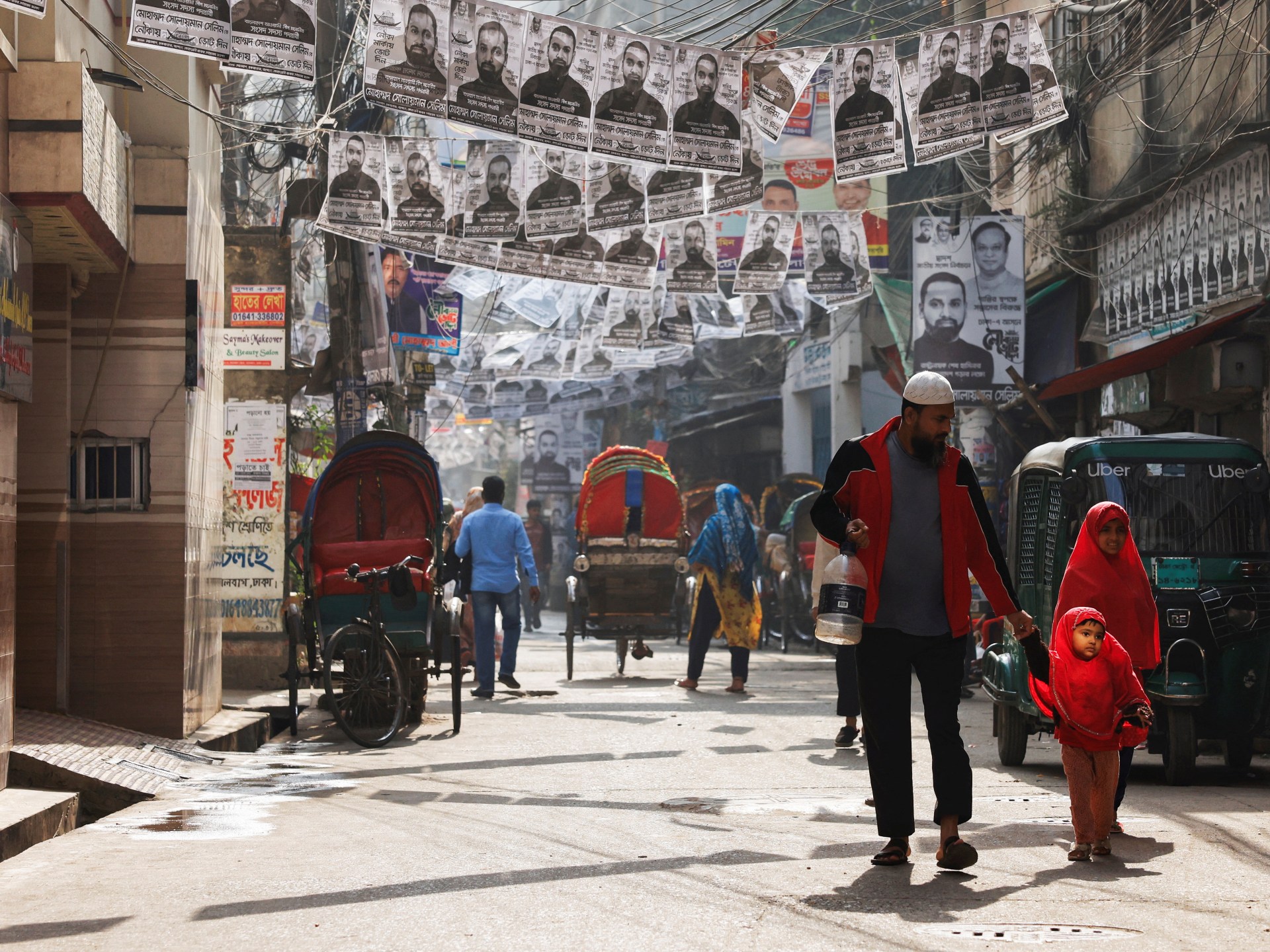Dhaka, Bangladesh – Hasanul Islam Ador, an elected representative in a rural area in southern Bangladesh’s Cox’s Bazar district, was taken aback when a group of officials in plain clothes barged into his home last week and issued threats ordering him to stop campaigning for an independent candidate for the national election to be held on Sunday.
Ador was on a campaign trail for Zafar Ahmed, the current member of parliament from the district representing the ruling Awami League (AL) party. When Ahmed failed to secure his party’s nomination this year, he was asked by his party’s leadership to run as an independent contender – one of what analysts and critics say are hundreds of so-called “dummy” candidates put up by Prime Minister Sheikh Hasina’s party to make the election look free and fair.
Hasina, 76, has been in power for 15 straight years – the longest-serving leader in Bangladesh’s history. Her tenure has been marked by allegations of authoritarian rule, targeting of the opposition, the suppression of people’s rights, and large-scale vote rigging in elections held to keep her in power.
As she seeks a record fourth term in Sunday’s vote, the main opposition Bangladesh Nationalist Party (BNP), led by ailing former Prime Minister Khaleda Zia, has decided to boycott the vote, as it did in 2014. The BNP says it does not have any confidence in Hasina presiding over a free and fair election. It demanded Hasina step down to make way for a caretaker government to organise the vote. But the demand was met with a severe government crackdown, which saw tens of thousands of BNP members arrested and at least 11 of them killed by security forces during street protests, raising concerns over valid elections in the garments hub of the world.
Since the opposition’s boycott call, Hasina’s party had been scrambling to field independent – or “dummy” – candidates to make the election look fair. The “competitive make-up”, as analysts call the move, saw the Awami League fielding candidates like Ahmed in the fray, but at the same time, ensuring the ballot does not throw up any surprises for the party.
Ador and more than a dozen other local representatives in Ahmed’s constituency wrote a letter to the Bangladesh Election Commission, saying “an intelligence agency had put immense pressure and threatened them” to work for an Awami League candidate. The commission acknowledged receiving such a letter to Al Jazeera, with election officials saying they were “seriously looking into the complaint”.
Without the main political opposition contesting, there is little uncertainty as to what the results of the Sunday vote will be. “This election is a charade,” prominent Bangladeshi rights activist Shahidul Alam told Al Jazeera. “It’s a mockery of our democracy – whatever is left of it.” The BNP has not only boycotted the election but has also announced a non-cooperation movement, asking people not to vote on Sunday. As a result, the ruling Awami League’s main concern at the moment is to ensure a “reasonable” voter turnout, according to its official Bahauddin Nasim. To do that, the party has allegedly resorted to “undue” measures.
In many constituencies, members of the ruling party have been accused of threatening to strip people of the government’s social benefits schemes if they fail to appear in polling booths on election day. Nearly 13 million people, belonging to the most vulnerable groups, receive direct social benefits from the government, according to the finance ministry’s data. Moreover, getting on the government list of beneficiaries is a process involving 473 elected officials, nearly all of them belonging to the Awami League.
Rumeen Farhana, the BNP’s international affairs secretary, told Al Jazeera that participating in an election, knowing it will be rigged, was “suicidal and a betrayal to the thousands who were hurt, detained, tortured, or killed for democracy and free speech”.

